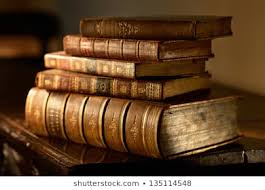|
http://www.jonimacfarlane.com/blog
Did I scare you off last time when I talked about reading the classics? Don’t worry, no one’s watching to check if you do. But believe it or not, some people were so caught up in the topic, they even asked me for recommendations. Well, that’s like bait to a trout. Of course, I’ll give you recommendations. But how to narrow it down?
There are so many great novels that have withstood the test of time by giving us universal truths with mythic characters and stories that shine the light on our shared humanity. Many of the writers I’ve listed have several important works so really, you could pick any of them. Here is my list of books I consider important for an all-round literary education. There are so many more, but if you can plow your way through these, you’ll have a firm handle on some of English history’s best literature. Added bonus, you’ll sound really smart at parties! Moby Dick by Herman Melville Of course, it’s a difficult book to read, but Melville’s classic is so firmly entrenched in our cultural references and myths. Beyond that, it’s full of wisdom and beautiful language like no other. And once you’ve finished, you’ll completely understand the obsessive pursuit of a pointless battle to its bitter, violent end. The Great Gatsby by F. Scott Fitzgerald I’m not going to say much other than it ranks as THE great American novel. Now that we’re in the 20s, everyone will be dressing up and pretending they understand the jazz age. Read this book and you truly will. War and Peace by Leo Tolstoy Do you like really big books? Tolstoy revolutionized the modern novel by packing in more human experience than in any other work of fiction. To Kill a Mockingbird by Harper Lee Exploring themes of racism and injustice, it’s also a great story about love and coming-of-age. Reaching across gender, class and cultural differences, the novel is a study in understanding and compassion in a world torn open by bitterness and anger. Crime and Punishment by Fyodor Dostoyevsky This book refashioned what a novel could do and gives us perspective into our own humanity by witnessing true evil. It may be an uneasy read, but it forces us to experience the lives of characters radically different from us. The Trial by Franz Kafka Am reminded of this novel lately while watching the U.S. impeachment hearings. Writing from personal experience, Kafka explores the dangers of bureaucracy in all its absurdity. 1984 by George Orwell In light of increasingly authoritarian government, Orwell is experiencing a resurgence lately. As a manifesto on the psychology of power and mechanisms of control, Orwell’s work is a brilliant political prophecy. Pride and Prejudice by Jane Austen Primarily viewed as a romantic novel of manners, P&P is also about the search for self. A theme that resonates as loudly as ever. The Old Man and the Sea by Ernest Hemingway The theme of man vs the nature, the importance of determination and never accepting defeat, will engage and stay with you long after you’ve finished the book. The Grapes of Wrath by John Steinbeck or East of Eden Steinbeck personalized the injustices dealt to migrants during the Great Depression and helped raise awareness which later spawned political activist movements. As relevant as ever, the story captures the need for cooperation and unity rather than individualistic ideals during hard times. More Great Classics… Lord of the Flies by William Golding As I Lay Dying by William Faulkner Wuthering Heights by Emily Bronte One Hundred Years of Solitude by Gabriel Garcia Marquez The Catcher in the Rye by J.D. Salinger Frankenstein by Mary Shelley A Tale of Two Cities by Charles Dickens The Picture of Dorian Gray by Oscar Wilde Hamlet by William Shakespeare The Portrait of a Lady by Henry James Brave New World by Aldous Huxley Middlemarch by George Eliot Heart of Darkness by Joseph Conrad Death in Venice by Thomas Mann Brideshead Revisited by Evelyn Waugh To the Lighthouse by Virginia Woolf A Portrait of the Artist as a Young Man by James Joyce (or Ulysses if you’re super ambitious) These books contain the basis of why we read literary works: to think, to feel, to question, to connect, to expand and to move us to the more universal and into the human experience. They are the “bright bolts of light illuminating the dark stretch before us”. Don’t be afraid! Until next time, happy reading. Joni
0 Comments
Leave a Reply. |
Archives
July 2024
Categories |


 RSS Feed
RSS Feed
